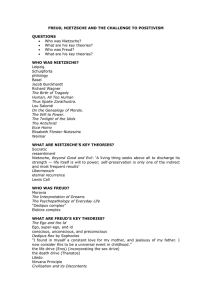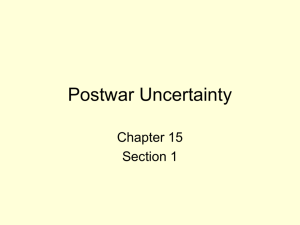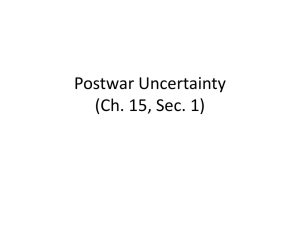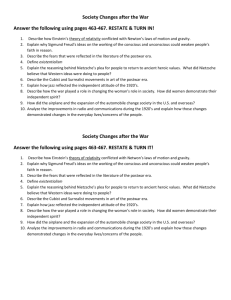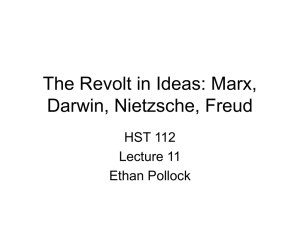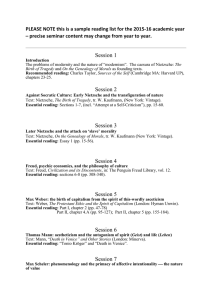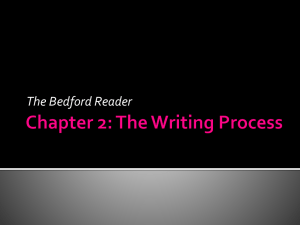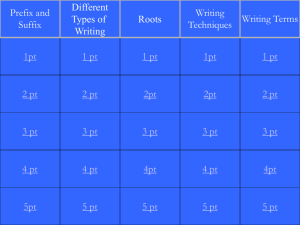Post War Uncertainty
advertisement
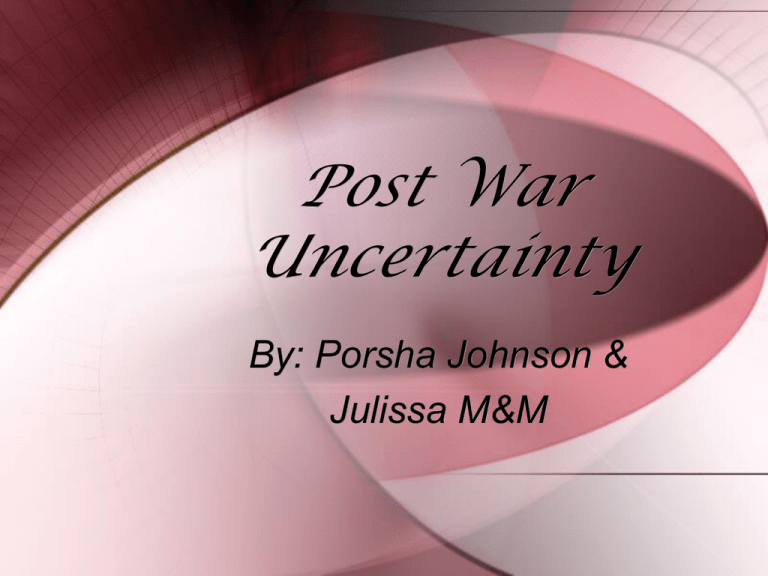
Post War Uncertainty By: Porsha Johnson & Julissa M&M What Happened During The Post War In the Post War, people began questioning traditional beliefs Some found answers in scientific development, which changed the way they looked at the world Many people used the technological improvements in transport an communication Women demanded more rights and young people adopted new values Scientific Advances German physicist Albert Einstein and Austrian physician, Sigmond Freud, mad major contributions to scientific development In 1905, Einstein theorized that while the speed of light is constant, such as space and time, are not. Space and time can change when measured relative to an object moving near the speed of light- about 186,000 miles per second (This was called the theory of relativity). Sigmund Freud believe that much of human behavior is irrational. He also called the Literature In the 1920’s The brutality of WWI caused philosophers and writers to question the acceptance of ideas about “reasons” and “progress”. Many people feared and expressed doubts about traditional religious beliefs, due to the impression of the war Some writers and thinkers expressed their anxieties by creating disturbing vision of the present and the future T.S. Eliot (an American poet that lived in England) described the postwar world as a barren “wasteland”, drained of hope & faith Literature In the 1920s (cont.) William Butler Yeats (an Irish poet) conveyed a sense of dark times ahead Horror of war made a deep impression on many writers Many novels showed the influence of Frued’s theories on the unconscious Some thinkers turned to the philosophy known as existentialism Existentialists influenced by German philosopher, Friedrich Nietzsche Nietzsche wrote that Western ideas such as reason, democracy, and progress had stifled people’s creativity and actions. Revolution In the Arts Artists wanted to depict the inner world of emotion and imagination Expressionist painters like Paul Klee used bold colors and exaggerated shapes Surrealism is an art movement that sought to link the world of dreams with real life A new style of music called jazz was created in the Untied States mainly by Advancements In Transportation and Entertainment Drugs and medical treatments were developed by new scientists, that helped billions of people in the postwar years War’s technological advances were used to improve transportation and communication after the war Automobile benefited from a host of wartime innovations and improvementselectric starters, air-filled tires and more Advancements In Transportation and Entertainment (cont.) International air travel became an objective after the war Guglielmo Marconi conducted his first successful experiments with the radio in 1865 Global prosperity came to depend on the economic well-being of all major nation, especially the Untied States The Real “Weapon” Merchant Marine “How To Play the Organ” Rising From the Ashes… Post-War Iraq The End THANK YOU AND GOODNIGHT!!!

